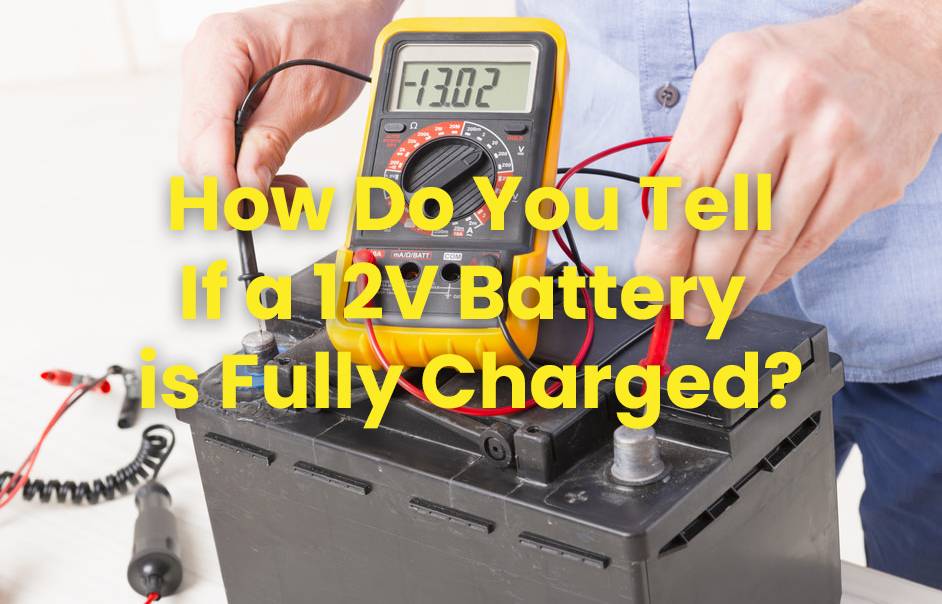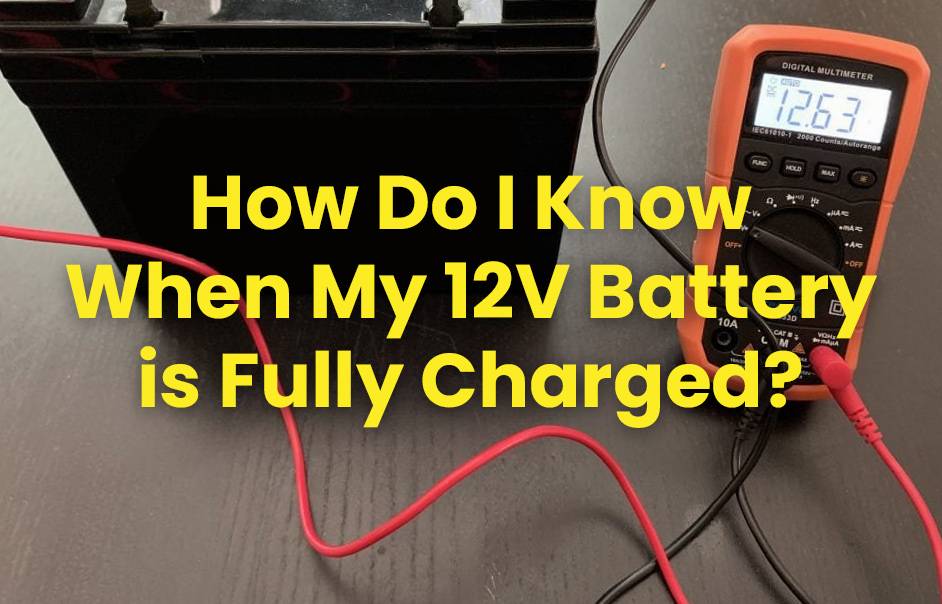To determine the maximum voltage for a fully charged 12V deep cycle battery, you typically look for a range between 13.8 to 14.4 volts. However, this can vary based on factors like temperature, charger type, and battery age. Understanding voltage is crucial for optimizing performance and longevity.
Understanding Deep Cycle Batteries
Deep cycle batteries are rechargeable and provide continuous power. Unlike regular batteries, they’re built to handle repeated charging and discharging. They’re commonly used in RVs, boats, and solar systems. These batteries work by storing energy in lead plates and releasing it when needed. Understanding their construction and usage helps maximize their lifespan and efficiency.
Understanding deep cycle batteries is essential for grasping their functionality and applications. These batteries are specialized rechargeable units designed for consistent, long-term power delivery. Let’s break down the key points:
- Continuous Power Supply: Deep cycle batteries differ from regular ones as they’re built to endure frequent charging and discharging cycles without losing efficiency.
- Applications: They find widespread use in various settings such as RVs, boats, and solar systems where sustained power over extended periods is necessary.
- Internal Mechanism: Deep cycle batteries store energy in lead plates and release it as needed, offering reliable and consistent performance.
By comprehending these aspects, users can make informed decisions regarding their energy needs while ensuring prolonged battery lifespan and optimal functionality.
The Importance of Voltage in Deep Cycle Batteries
Voltage is crucial in deep cycle batteries, determining their power storage and discharge. Fully charged, a 12-volt battery should read between 12.6 to 13.8 volts. Maintaining this range is vital to prevent overcharging or undercharging, which can harm the battery. Regular monitoring with a voltmeter and proper charging practices ensure optimal performance and longevity. Avoid extreme temperatures and store in moderate conditions for best results.
Let’s dive deeper into why voltage matters and how to keep your battery running smoothly.
- Voltage Range:
- Think of voltage as a battery’s fuel gauge. A fully charged 12-volt deep cycle battery usually reads between 12.6 to 13.8 volts. This range means your battery is good to go!
- But watch out! If the voltage goes too high, it’s like pouring too much gas in your car – it can damage the battery. And if it drops too low, it’s like running out of gas – your battery won’t work well.
- Factors Affecting Voltage:
- Just like how the weather affects your mood, temperature changes affect a battery’s voltage. Hot weather can boost it, while cold weather can lower it.
- Also, how you charge your battery matters. Different charging methods can make the voltage go up or down, just like how you can fill your gas tank slowly or quickly.
- Maintenance Tips:
- Check your battery’s voltage regularly, just like you check your gas gauge before a long trip.
- Charge your battery properly according to the instructions. It’s like following the right recipe for baking a cake – you’ll get the best results!
- And remember to keep your battery in a comfy temperature – not too hot, not too cold – just right, like the porridge in Goldilocks!
By understanding and managing your battery’s voltage, you can make sure it’s ready to power up your adventures whenever you need it!

Determining the Maximum Voltage for a Fully Charged 12v Battery
Determining the maximum voltage for a fully charged 12v battery is important. Typically, it ranges from 13.8 to 14.4 volts. Factors like temperature and charger type can affect this. High temperatures may raise voltage slightly, while certain chargers have different effects. Overcharging can be harmful, so monitor charge levels and avoid leaving batteries connected excessively after reaching full capacity.
Here’s how to determine its maximum voltage:
- Voltage Range: A fully charged 12v battery typically ranges from 13.8 to 14.4 volts. This range ensures sufficient power for various applications like automotive, marine, and solar systems.
- Factors Affecting Voltage: Temperature and charger type influence the battery’s maximum voltage. High temperatures can slightly elevate voltage, while different chargers may have varying effects on it.
- Preventing Overcharging: Overcharging can damage the battery. It’s crucial to monitor charge levels and disconnect the battery from the charger once it reaches full capacity to prevent overcharging and prolong its lifespan.
Factors That Affect Maximum Voltage
Several factors influence the maximum voltage of a fully charged 12v deep cycle battery:
- Temperature: Extreme temperatures, hot or cold, impact battery performance and capacity.
- Charge Rate: Rapid charging or improper methods can lead to overcharging, elevating voltage.
- Battery Age and Condition: Aging reduces capacity and affects voltage.
- Internal Resistance: Higher resistance can cause energy loss and affect voltage.
- Charge State: Fully charged batteries have higher voltage compared to partially discharged ones.
Understanding these factors is crucial for maintaining battery performance and longevity.
Maintaining and Monitoring Your Battery’s Voltage
Maintaining and monitoring your battery’s voltage is crucial for optimal performance. Here are some tips: 1. Regularly check voltage with a voltmeter. 2. Keep records of voltage levels over time. 3. Monitor voltage during charging to avoid overcharging. 4. Prevent over-discharging for longevity. 5. Follow manufacturer recommendations for maintenance. 6. Promptly troubleshoot any voltage irregularities for optimal battery health.
Let’s break down some easy-to-follow steps:
- Regular Voltage Checks: Use a voltmeter to check your battery’s voltage regularly. This helps you understand its current state and whether it needs charging.
- Record Keeping: Keep track of the voltage readings over time. This helps you identify any patterns or issues with your battery’s performance.
- Monitoring During Charging: Pay attention to the voltage while charging to avoid overcharging, which can damage the battery. Ensure it doesn’t exceed the recommended maximum level.
- Preventing Over-Discharging: Avoid letting your battery drain too much, as it can shorten its lifespan. Try to maintain at least 50% charge whenever possible.
- Follow Maintenance Recommendations: Stick to the manufacturer’s maintenance guidelines to keep your battery in top shape.
- Prompt Troubleshooting: If you notice any significant drops in voltage or irregularities, investigate and address the issue promptly to prevent further damage.
By following these simple steps, you can ensure your battery stays healthy and performs optimally for a long time.
Tips for Maximizing the Lifespan of Your Deep Cycle Battery
Maximize deep cycle battery lifespan with proper charging, maintenance, and storage. Avoid deep discharges and overloading. Use a quality charger and monitor voltage levels regularly. Smart technology like temperature compensation helps. Keep terminals clean and store batteries in a cool, dry place. Follow these tips for longer-lasting batteries.
By following these steps, you’ll enjoy more reliable power for longer durations.
- Quality Charging: Opt for a charger specifically designed for your deep cycle battery. This ensures it receives the right amount of charge without overloading or undercharging, which can shorten its lifespan.
- Regular Maintenance: Keep your battery clean and free from corrosion by regularly inspecting and cleaning the terminals. This prevents buildup that can affect its performance and longevity.
- Proper Storage: When not in use, store your battery in a cool, dry place away from extreme temperatures. This helps prevent degradation and maintains its overall health for longer periods.
By following these simple steps, you’ll extend the lifespan of your deep cycle battery, ensuring reliable power when you need it most.



